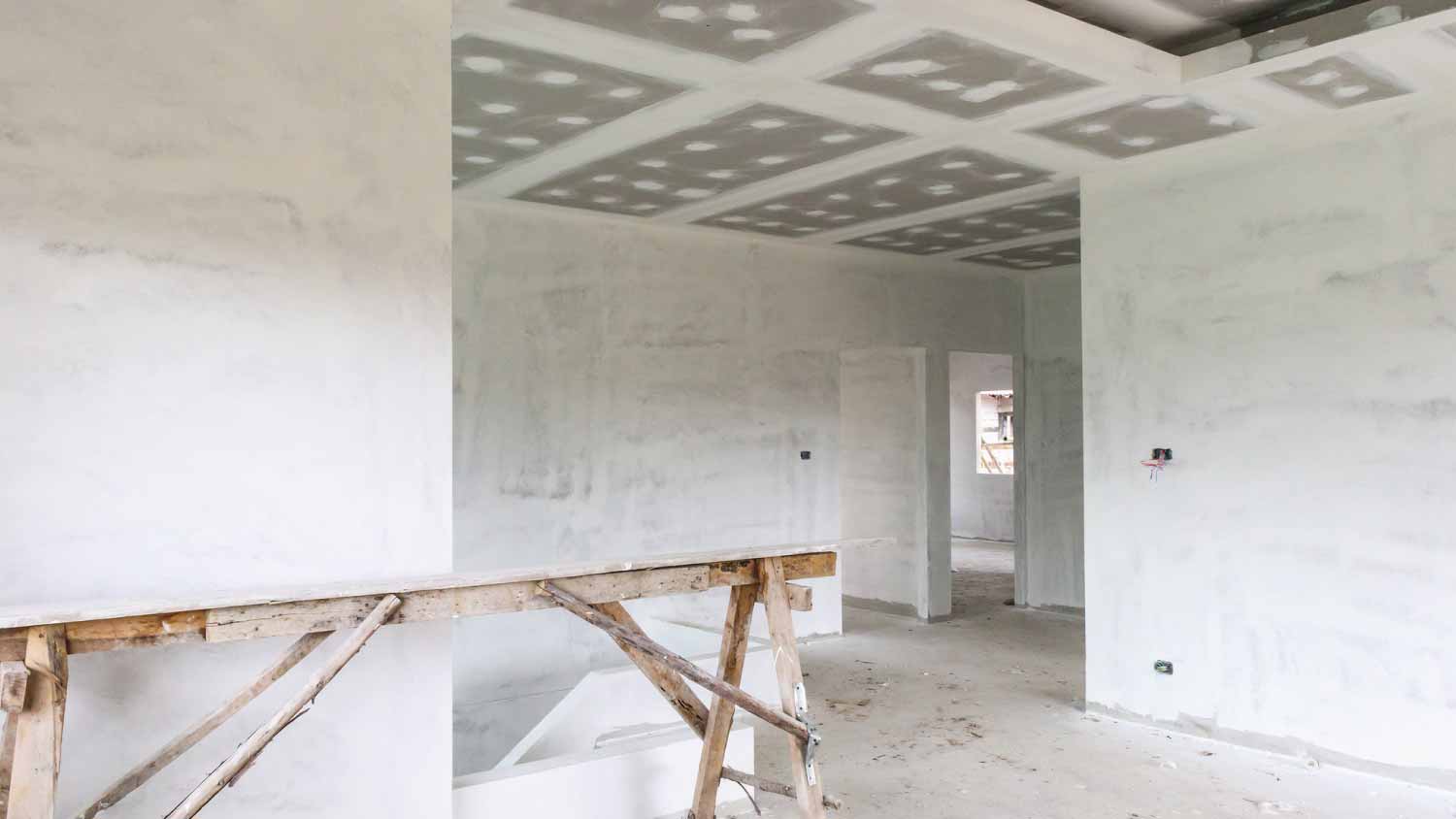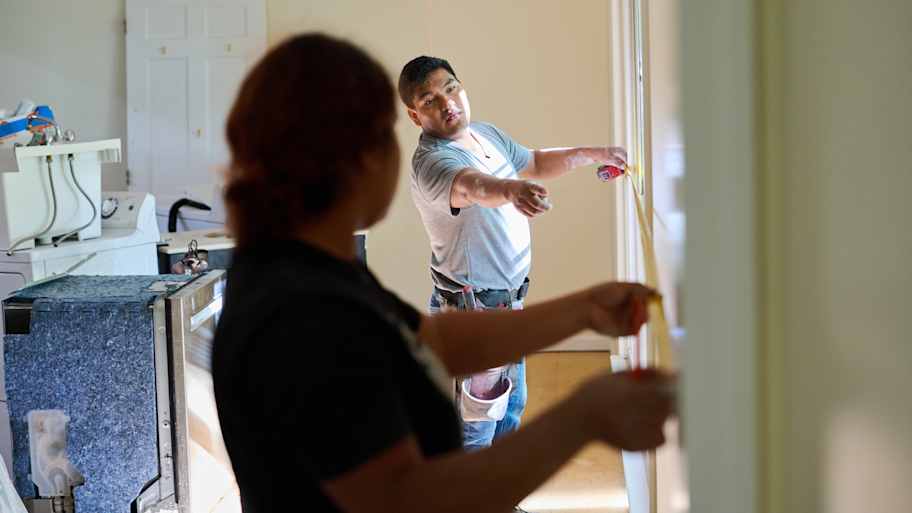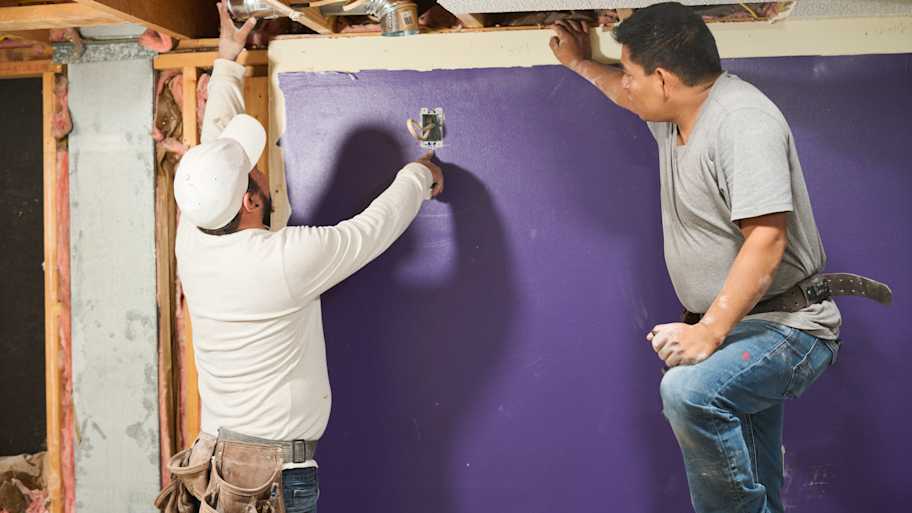How Much Does a Sheet of Drywall Weigh?
Estimate your drywall weight before tackling a project


A standard-sized drywall sheet weighs 50 pounds on average.
However, drywall weights commonly range between 30 and 90 pounds.
The weight of drywall panels depends on several factors, including the panel’s thickness, size, and type.
Due to drywall’s heavy weight and bulky size, you should hire a pro for installation.
On average, drywall installation projects cost $2,100.
Drywall comes with plenty of benefits, but one of the drawbacks is that it’s fairly heavy and difficult to lug around, which is important to consider if you’re planning a DIY drywall installation. So, just how much does a sheet of drywall weigh? Let’s look at the most common weights for different drywall thicknesses.
How Much Does Drywall Weigh?
Drywall doesn’t just come in different thicknesses and sizes. It comes in various weights, too.
| Dimensions in Feet | Thickness in Inches | Average Weight in Pounds |
|---|---|---|
| 4x8 | 1/4 | 34 |
| 4x8 | 3/8 | 38 |
| 4x8 | 1/2 | 39 |
| 4x8 | 5/8 | 70 |
| 4x10 | 1/2 | 49 |
| 4x12 | 1/2 | 59 |
| 4x16 | 1/2 | 80 |
Factors That Impact Drywall Weight
.jpg?impolicy=leadImage)
There are a few factors that impact the weight of a drywall sheet, including its thickness, dimensions, and type.
Drywall Thickness and Dimensions
There are several standard drywall thicknesses:
1/4 inches
3/8 inches
1/2 inches (the most common)
5/8 inches
Drywall panels also come in multiple sizes. They’re often 4 feet wide, with heights ranging between 8 and 16 feet. The most common dimensions are 4 by 8 feet, but the standard sizes are:
4 by 8 feet
4 by 10 feet
4 by 12 feet
4 by 14 feet
4 by 16 feet
As you might expect, thicker and larger drywall panels weigh more than thinner and smaller ones.
Drywall Type
The type of drywall can also affect its weight. Lightweight drywall, for example, is 25% lighter than standard drywall.
How Does Drywall Installation Work?
There are multiple steps involved in installing drywall, including hanging it, taping and mudding the seams, and sanding. If you hire a professional crew, installing drywall takes a few days for an individual room or basement. For a 2,000-square-foot house, you can expect the project to take a week.
Square footage is a key factor in determining drywall installation costs, but it's not the only factor. Drywall companies consider how long it takes to complete the job, the location of damage and framing conditions, and if other repairs are needed—especially if water damage is involved.
On average, professional drywall installation costs between $990 and $3,200. Your price will depend on the type and thickness of the drywall, level of finish, local labor rates, and other factors. Drywall projects are labor-intensive, so hiring a local drywall pro is safer than DIYing unless you already have experience in drywall installation.
Frequently Asked Questions
Yes, it’s possible to hang drywall by yourself, but it can be challenging (and more expensive). Without an extra set of hands, you’ll need to invest in a drywall lift to position the heavy drywall sheets on the wall. You can buy one of these drywall tools for a few hundred dollars at your nearest home improvement store.
You should always work from top to bottom when hanging drywall. There are a few reasons for this. For one, starting at the top makes it easier to create a straight wall between the ceiling and the wall. Plus, moving downward lets you avoid any awkward gaps at the top. It’s easier to deal with gaps at the bottom because you can cut the drywall to fit the space or cover the gap with baseboard trim.















